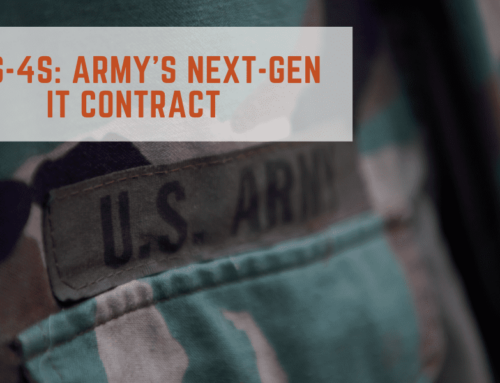The Medical Q Coded Support and Services Next Generation (MQS2-NG) solicitation has been in the works for three years. Given the five-year life cycle of the previous contract, the fact that there are currently 63 incumbent contractors, and the projected value of over $40B, the competition will be stiff — with more than 200 offerors expected to bid.
I would suggest that there are several things that need to begin now to reduce the mad rush for Medical Q Coded Support and Services Next Generation (MQS2-NG).
- Price-to-Win: Even though the pricing will be task order based, there is a tremendous amount of data that must be gathered and analyzed. Consider that the number of performance locations and labor categories comprise nearly 20 pages of the RFP. The effort required to gather and collate all of the data is substantial. You need to consider building your rate tables up now so that, should you win a seat, you can, with some degree of certainty, develop location-specific rate tables that will win at the Task Order Level.
- Proposal Management Staffing: Take a pragmatic look at your current proposal response capabilities and determine if your current staff can perform to the requirements. For instance, do you have a proposal manager (PM) who has helped prepare a “scoresheet-based response” (e.g., CIO-SP4, OASIS, etc.)? If not, then you may want to find a third-party to assist. Whoever your PM is, consider that there will most likely need to be an individual playing the role of Coordinator simply to track the HUGE number of information pieces that are required for the response.
- Writing Support: Page limits were not addressed in the draft RFP for any of the narrative sections. Given that the response is an electronic submission, it would not be implausible for the narrative content to be substantial. Consider if you have sufficient writing resources should the page limits be set at various levels, and take the necessary steps to identify where required resources will be drawn from the effort.
The draft RFP is more involved structurally than the previous solicitation, with more parts requiring a narrative (“supporting documentation” which is left to the offeror’s imagination). As an example, the draft technical requirements section has three more tabs, all of which require supporting documentation regarding staffing ratios, technology enablers, and organization certification – none of these tabs are page limited. Bidders will likely need to provide a significant narrative around the information to be presented in these and other tabs.
- Review Support: How will your organization support the required reviews required by your internal processes? Again, consider the experience of your reviewers with assessing a “scoresheet-based” response. Accessing experienced third-party reviewers may be a relatively small expense given the potential return on investment should you win.
- Review Q&A Responses: The Contracting Office released a modified special notice on June 28th to provide the MQS2-NG Industry Day Questions and Answers.
To this day, the Solicitation is anticipated to be issued on or about July 6, 2022. The RFP due date is anticipated no later than September 12, 2022.
GovWin Opportunity ID: 181380
Sam.gov: HT0015-22-RFI-0142







Leave A Comment